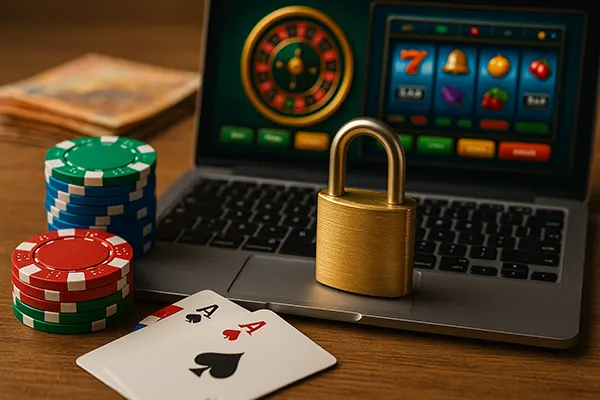
Online Casino Licences: How to Verify Legality and Protect Yourself from Fraud
Online casinos are required by law to operate under strict licensing regimes to ensure transparency, fairness, and user protection. However, not all sites follow these rules, and for players, it’s critical to know how to verify an operator’s legitimacy to avoid falling victim to scams. Below, you’ll find practical guidance on identifying licensed operators and understanding how licensing affects your safety as a player.
What Is an Online Casino Licence and Why It Matters
Every reputable online casino must hold a valid gambling licence issued by a recognised regulatory body. This licence demonstrates that the operator has passed financial audits, complies with responsible gambling practices, and ensures game fairness using certified software.
In the UK, the United Kingdom Gambling Commission (UKGC) is the authority overseeing gambling operations. Other recognised regulators include the Malta Gaming Authority (MGA), the Gibraltar Regulatory Authority, and the Alderney Gambling Control Commission.
Licences are not just a formality. They provide legal assurance that your data is protected, your funds are held securely, and the games are not rigged. They also ensure the operator is subject to regulatory oversight and can be penalised for misconduct.
How Licensing Influences Player Safety
When an operator is licensed, it must implement Know Your Customer (KYC) protocols, anti-money laundering measures, and self-exclusion tools. These mechanisms protect users from fraud, underage gambling, and problem gambling behaviour.
Licensed operators must also submit to regular audits, maintain transparent payout percentages, and collaborate with independent testing agencies like eCOGRA or iTech Labs.
This level of regulation greatly reduces the risk of manipulation or abuse, offering players peace of mind when depositing money or playing games.
How to Check if an Online Casino Is Licensed
To verify whether an online casino holds a valid licence, begin by scrolling to the bottom of the site’s homepage. Most regulated casinos display the logo and registration number of their licensing authority in the footer.
You should then visit the official website of the stated regulator, such as the UKGC or MGA, and use their public licence register to cross-check the information. A legitimate casino will be listed, along with their licence status and details about the parent company.
Pay attention to the exact name and web domain listed in the register. Fraudulent operators often mimic the appearance of licensed casinos by using similar branding or expired registration numbers.
Red Flags That Suggest a Casino May Be Unlicensed
If a site does not mention any licensing information or refuses to provide verification on request, it’s a major warning sign. Operators avoiding regulatory oversight often offer unrealistic bonuses, delay withdrawals, or use unverified game software.
Sites with vague contact details, no Terms & Conditions, or unclear dispute resolution policies should be treated with caution. Legitimate casinos are always transparent about their legal framework and player support systems.
Another red flag is the absence of responsible gambling tools or options for player self-limitation. These features are mandatory for any site operating under a reputable licence.

How Regulation Helps Prevent Casino Scams
Scams in the online gambling sector range from unfair games and withheld payouts to identity theft and financial fraud. Regulators combat these threats by enforcing compliance with strict industry standards.
Licensed casinos must protect user data through encrypted communication protocols (SSL), offer secure payment methods, and segregate player funds from operational expenses. Any breach of these rules can lead to heavy fines or licence suspension.
Dispute resolution mechanisms are also a requirement. Licensed operators must cooperate with Alternative Dispute Resolution (ADR) providers, giving players an official channel to resolve complaints fairly.
The Role of Independent Auditors and Testing Labs
External auditing agencies play a key role in maintaining transparency. They assess random number generator (RNG) integrity, fairness of game outcomes, and payout percentages. Without their verification, there’s no way to ensure the games aren’t manipulated.
Commonly used agencies include GLI, eCOGRA, and iTech Labs. Their certifications are often displayed on the casino’s website and can be independently confirmed on the auditor’s own portal.
Regular testing also ensures that games remain fair over time and that updates or modifications have not introduced any potential biases or flaws.
